Nigeria's Lekki shooting: What has happened so far at Lagos judicial panel
- Published
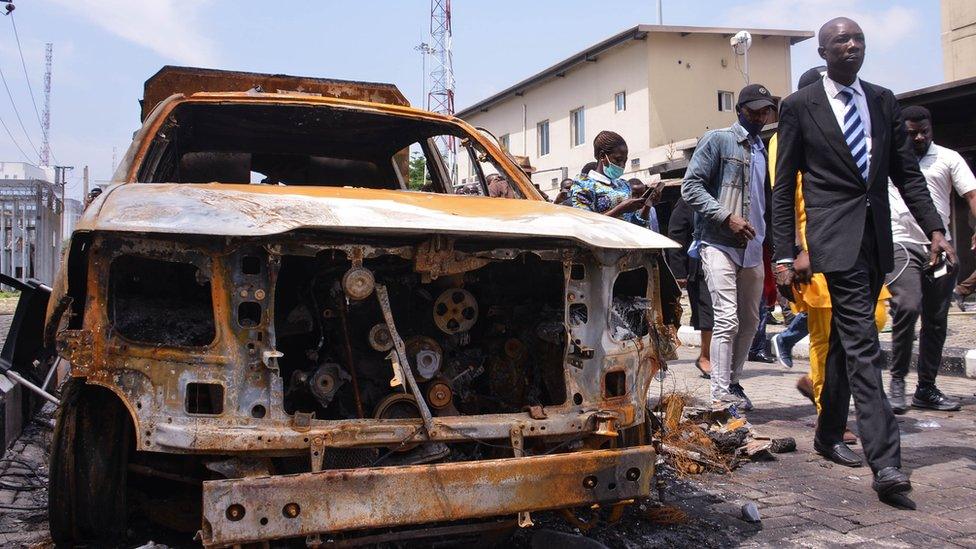
Members of the panel of inquiry visited the Lekki toll gate as part of their investigations
The shooting in Nigeria during a protest last month against police brutality at the Lekki toll gate in the commercial hub, Lagos, led to condemnation across the world.
But beyond the fact that shots were fired, there is little agreement between the protesters and the security forces over what exactly happened that night.
It was hoped that a judicial inquiry set up to look into the events at Lekki as well as the wider issue of police brutality would bring some clarity. But that has not yet been the case.
Our correspondents have been at the Lagos panel and this is what has transpired so far:
Who asked the army to go to the toll gate?
The presence of the army at the toll gate during a peaceful protest has attracted a lot of criticism but it is still not clear who gave the order.
Lagos Governor Babajide Sanwo-Olu declared a curfew on 20 October to contain the violence which had broken out in some parts of the state during protests against the Special Anti-Robbery Squad (Sars).
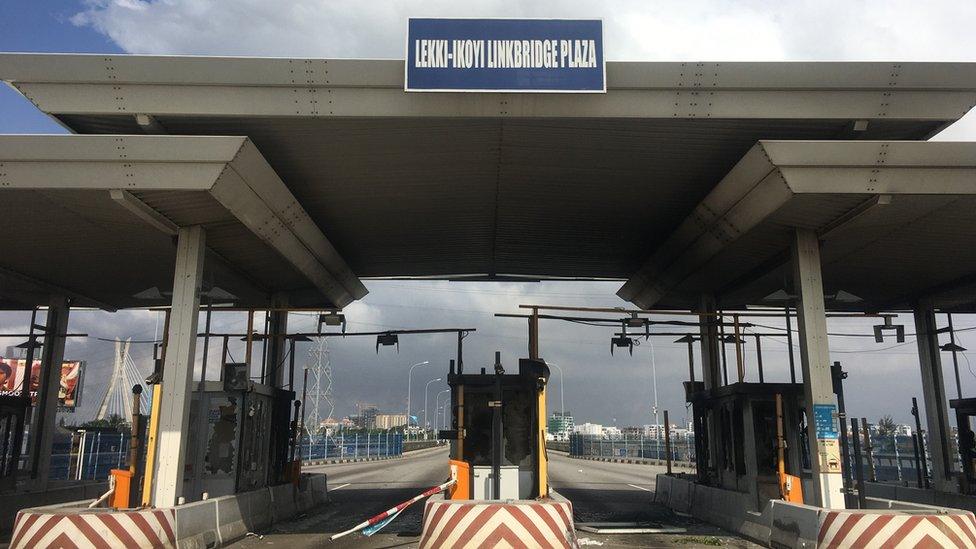
The Lekki toll gate is now free for vehicles to pass through
A few hours after the curfew was announced, the soldiers arrived at the Lekki toll gate where #EndSars protesters had camped for days. In response to the presence of the military, Mr Sanwo-Olu told local station Arise TV on 22 October that he did not have the authority to ask for a military presence at the protest venue.
The army, however, told the panel on 14 November that they were at the toll gate on the invitation of Mr Sanwo-Olu. Brig-Gen Ahmed Taiwo said the governor had asked for military intervention because the police had been overrun.
At another panel sitting on 21 November, the army representative said their mission was not to clear the protest but to "ensure normalcy in the Eti-Osa corridor [the area around the toll gate]". The governor is yet to respond to the military.
Did the army use live ammunition?
There have been allegations that the army and police shot at the protesters and other people nearby. Amnesty International says that 12 people died.
At the beginning of the panel sitting, the army denied killing anyone and insisted that the soldiers at the toll gate had fired blank rounds at the protesters.
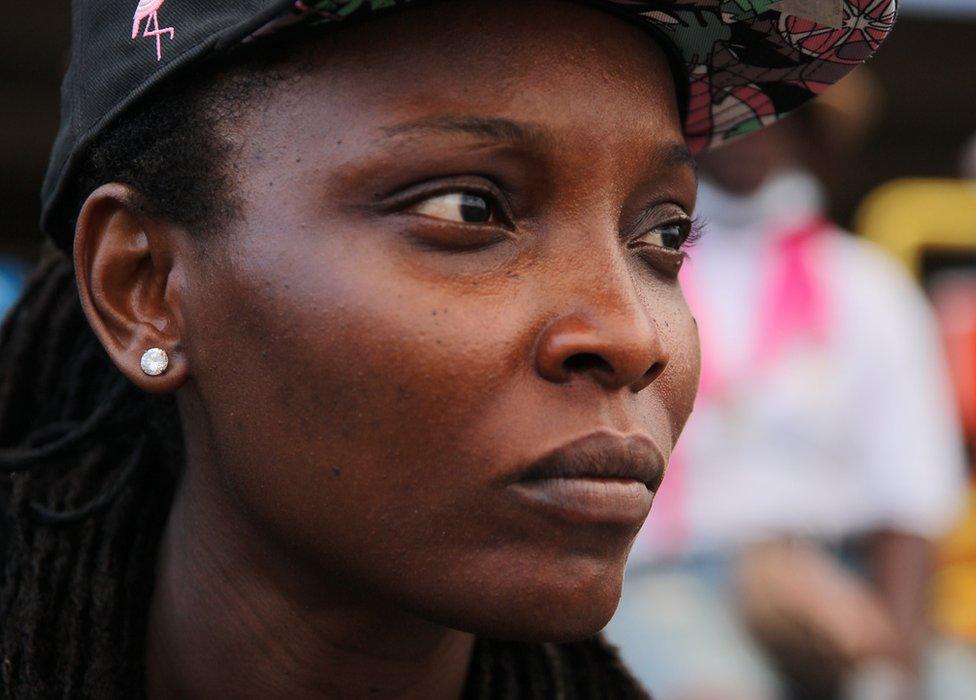
DJ Switch, who live-streamed the shooting by the army at the Lekki toll gate, has since fled Nigeria
On 21 November, Brig-Gen Taiwo told the panel that military men were armed with live and blank bullets because of "hoodlums" who had infiltrated the protest and sought to take advantage of the situation.
During cross-examination, the army representative said hoodlums had thrown stones at soldiers on patrol around Oriental Hotel, just before the toll gate; leading to one soldier sustaining injuries.
"They were pelted just before Oriental Hotel, their response was to fire blank ammunition. One officer was wounded; he was stoned on the lips. If we were attacked with stones, the only option was gunshots [blank rounds]."
Does the BBC report corroborate what the Nigerian army said?
At various panel sittings and in a press statement, the army presented a BBC report of the Lekki shooting to corroborate its position that it fired into the air and not at protesters.
BBC Pidgin reporter Damilola Banjo in her report, only described what she witnessed at the protest ground where she was reporting live. Banjo, who left the scene about 25 minutes after the soldiers arrived, said:
"Before we left the scene, they [military] were shooting into the air and while we were trying to find a safe cover, I saw a young man who seemed to be struggling for breath.
"I think what must have caused his situation must have been the sudden shock of the sporadic shooting from the military and of course the environment was tense.
"The shooting continued for about 20 minutes and we had to lie on our chests and move away from the crowd because of the high risk of stampede. My editor had to approach one of the soldiers to identify us as journalists before they allowed us a safe pass. We could only do that after about 20- 25 minutes of continuous shooting.''
Who switched off the CCTV?
Another controversy surrounding the Lekki shooting was the absence of surveillance cameras on the night of the incident.
Speaking at the panel, the Managing Director of the Lekki Concession Company which manages the toll plaza, Abayomi Omomuwasan, said network problems caused the camera to stop working at 20:00.
There were violent clashes at an End Sars demonstration and protestors claim the army opened fire 'to kill'.
Responding to allegations that the company deliberately switched off the lights at the protest ground, Mr Omomuwasan stated that due to the curfew imposed by the state government, LCC withdrew its staff and this prevented them from switching on the generator backup when the main power supply went off.
How many people died?
Responding to allegations that many people were shot dead at the toll gate and surrounding areas by the military, Governor Sanwo-Olu told CNN that two dead bodies were in the morgue and called for citizens with evidence of deaths or relatives of the alleged deceased to come forward.
However, the Nigerian army has denied killing anyone at the toll gate. Brig-Gen Taiwo told the panel that one person died from force trauma on Admiralty Road (3km; 2 miles from Lekki) while the police brought in another dead person from the Yaba area of Lagos.
How long will the panel sit?
The panel is led by a retired judge, Doris Okuwobi, and includes members from civil society groups, the Human Rights Commission, Citizens Mediation Centre and two youth representatives.
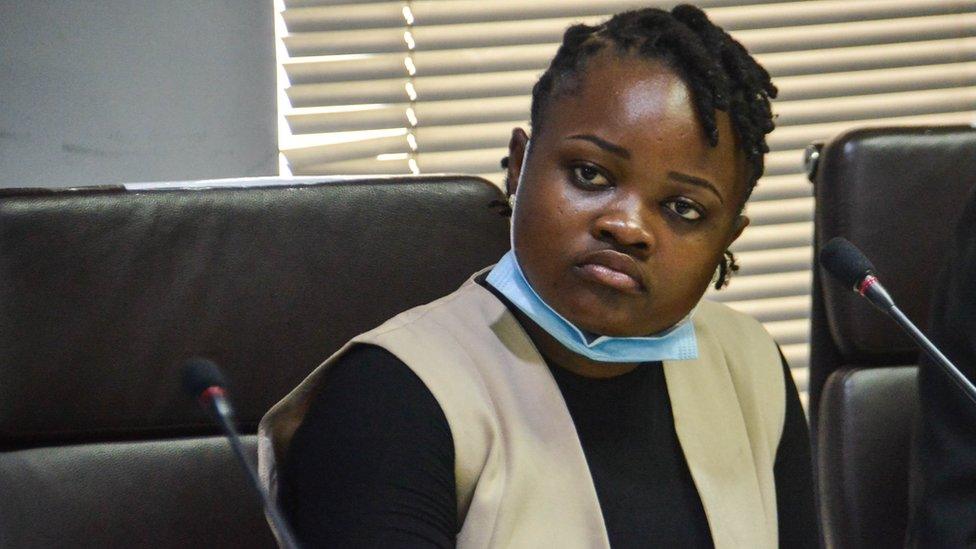
One of the youth representatives on the judicial panel is Oluwarinu Odulala who was a popular figure during the protests
The Lagos judicial panel has received over 110 petitions and is expected to hear all complainants with their legal representatives and witnesses in attendance.
The eight-member panel that commenced sitting on 27 October will sit for six months to investigate claims of police brutality with the aim to bring erring officers to justice and recommend compensations for victims.
- Published3 November 2020
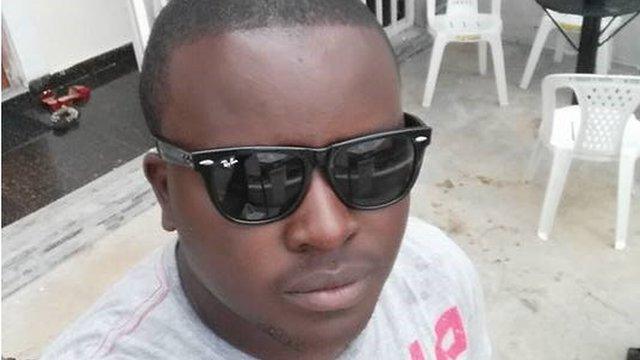
- Published24 October 2020
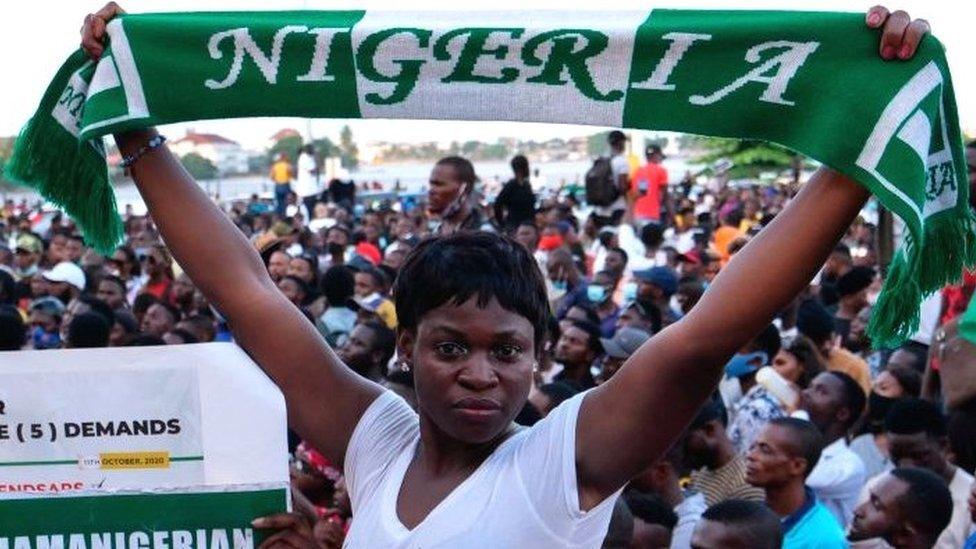
- Published21 October 2020
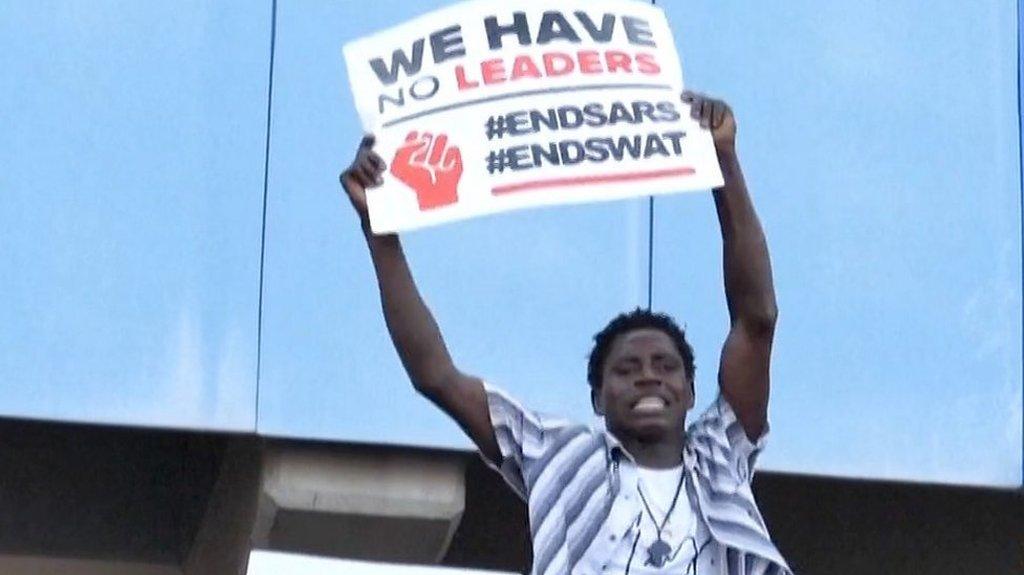
- Published29 October 2020